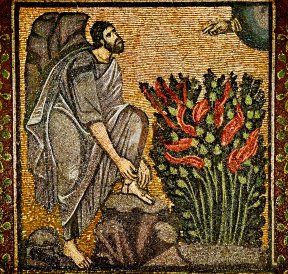
 HE COLLECT for today’s solemnity contains a very beautiful phrase. Speaking about the Blessed Mother, the oration references her “fruitful virginity,” which is a rather interesting thing to say. (Notably, this phrase was overlooked entirely by the former translation of the missal.)
HE COLLECT for today’s solemnity contains a very beautiful phrase. Speaking about the Blessed Mother, the oration references her “fruitful virginity,” which is a rather interesting thing to say. (Notably, this phrase was overlooked entirely by the former translation of the missal.)
“Fruitful virginity” is the same as saying “Virgin Mother,” both of which appear to be oxymorons. An oxymoron is a combination of words that have opposite meanings. It doesn’t seem like the words “fruitful” and “virginity” could ever describe the same person. And yet, in Mary, they do.
That the Son of God was borne into this world through a Virgin should remind us a bit of the creation story. We say that God created the world ex nihilo. In much the same way, Mary conceives and bears a Son “out of nothing,” with the assistance of the Holy Spirit instead of a man.
There is another Old Testament passage that comes to mind, as well. In the Book of Exodus, chapter 3, we read about Moses on Mount Horeb, where God manifests Himself to Moses through a burning bush. Moses heard the voice of the Lord calling to him, and the voice came from the bush. So he took a closer look and noticed that, despite the flames, the bush, itself, was not being consumed.
If the bush had simply been burning, that would not have been remarkable. I’m sure that was a frequent sight out in the desert. But Moses rightly says this is a “remarkable sight” (Exodus 3:3), because the bush was on fire yet was not being consumed. That right there is an image of “fruitful virginity.” Without losing anything of itself, the bush that Moses saw brought forth flames and so served as an image of God, Who creates “out of nothing” and Mary, who conceives a Child as a Virgin.
Why is it important that Mary should display “fruitful virginity”? Because motherhood and virginity are the two glories of womanhood. In the natural order, there is no way for any woman to retain both throughout the entire course of her life. It is one or the other. The vocation to motherhood and the vocation to consecrated virginity are both beautiful, but both cannot subsist in one person at the same time. With Mary, however, it is not an either-or proposition. She is both Virgin and Mother. Thus, she can be a model for every woman.
Friends, “fruitful virginity” is not just a striking phrase; it is a description of the way we are all meant to live. Whether you’re a parent with ten children or a high school student or a celibate priest, all of us are called to bring forth life by our single-hearted devotion to God. We are called to bring forth Christ in our own words and actions and so draw Him out of those around us.
Holy Mary, Mother of God, you brought forth for us our Savior, while still ever remaining a Virgin. Help us, also, to bring Jesus into this world, which longs so much for Him!
